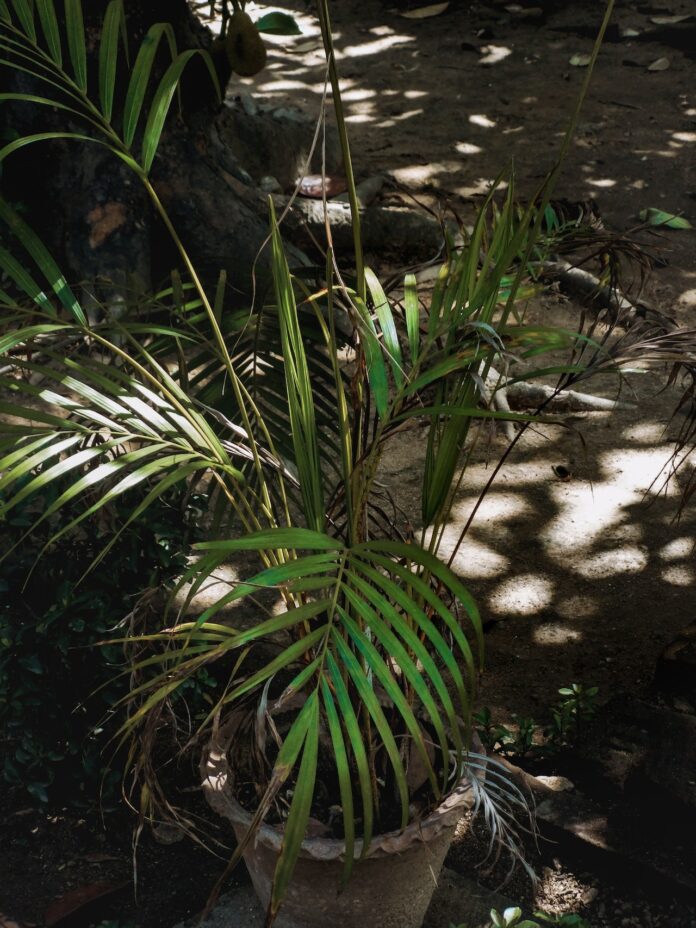As the weather begins to pick up across the UK, gardeners are being given advice on how to help their plants in the heat.
Experts at GardeningExpress.co.uk are giving their tips on how to help plants survive the sun.
Some plants thrive in the sun but others can often be damaged if exposed for too long and they may begin to wilt.
It’s important for gardeners to understand what their plants need in order to protect them from the sun.
Plants like Peperomia and Begonia grow best in shade and partial sunlight so it’s essential to move them to a location in the garden that is not exposed to full sun.
Nick Wood from Gardening Express said: “Obviously sun is good for our plants, but some thrive off of it more than others so it’s important to know what needs to be taken care of in your garden as the weather begins to pick up.
“For some plants, too much sun can cause damage, and can even cause them to wilt in severe cases and of course it can be really frustrating for gardeners if this happens.
“There are a few small things you can do like moving the plants into shade and watering them at the right time to help protect them from the sun.”
How to help plants survive a heatwave:
1. Pick the right plants for each location
Some areas of your garden may get more sun than others so it’s important to take some time to familiarise yourself with plants that thrive off of the sun and plants that don’t.
2. Smart watering
It’s best to water plants before or after the sun has hit its peak. Watering plants at the hottest point of the day won’t really benefit them as the sun will dry up the water. It needs to be done when it’s slightly cooler to give the plants the chance to really soak everything up.
Avoid thinking your plants need more water in heat as this isn’t necessarily true and you could end up over watering them. Aim to water plants once a day, giving them a good drench will allow the water to seep deep into the soil and get to the deep roots.
3. Avoid using fertiliser
A common mistake people make is thinking plants need fertiliser in warmer conditions to make them stronger.
You should actually avoid using fertiliser because when it is applied, it triggers the plant to grow, meaning more nutrients and water is needed. This will be hard to keep up with in hot conditions, the soil will be drying out quicker and your plant won’t really be able to absorb water properly in the heat.
4. Shade shade shade
Just like us, plants could do with a bit of shade when it gets too hot. If your plants are in pots you can simply move them to a cooler area of the garden. If your plants are in a flower bed there are ways you can create a bit of shade.
You can use anything from a white bedsheet to maybe an old net curtain. Just simply pin or hang it above the area of your plants to protect them from the sun.
5. Use mulch to lock in soil moisture
Soil dries out quicker in higher temperatures, so it’s a good idea to lock in the moisture once you’ve watered your plants especially if they require moist soil. Mulch is a layer that you can put on top of your soil to act as a bit of a barrier between the sun and the soil to prevent it from drying out.
6. Pick the right pots
Pots can make a difference to how much sun can access plants. Black pots will attract the heat, which can damage your plants. Similarly, pots like terracotta that are left unsealed can lose moisture quickly which means that your plant is at risk of being dehydrated.
Aim to get pots that are sealed and light in colour in order to reflect the sun and give your plant the best environment when the sun is out.
For more advice on planting in different garden conditions, please visit GardeningExpress’ knowledge hub
Help keep news FREE for our readers
Supporting your local community newspaper/online news outlet is crucial now more than ever. If you believe in independent journalism, then consider making a valuable contribution by making a one-time or monthly donation. We operate in rural areas where providing unbiased news can be challenging. Read More About Supporting The West Wales Chronicle

























